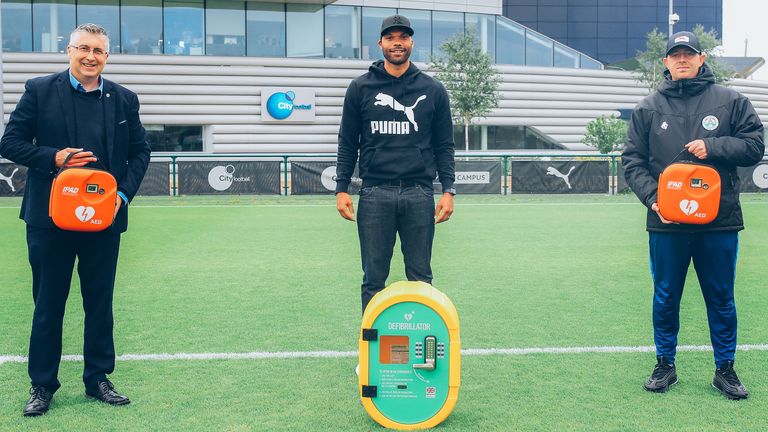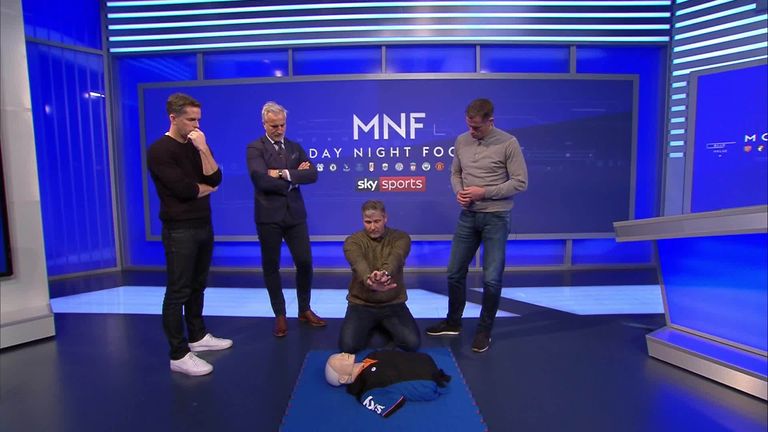Manchester City fund defibrillators for grassroots football clubs
A total of 26 defibrillators will be donated to grassroots clubs in the area who are currently unable to access the life-saving device and include Ancoats & Beswick, Ardwick, Clayton & Openshaw, Gorton & Abbey Hey and Longsight.
Friday 25 June 2021 15:27, UK
Manchester City and their charity, City in the Community, have jointly funded the purchase of automated external defibrillators (AED) for grassroots football clubs in East Manchester.
A total of 26 defibrillators will be donated to grassroots clubs in the area who are currently unable to access the life-saving device and include Ancoats & Beswick, Ardwick, Clayton & Openshaw, Gorton & Abbey Hey and Longsight.
The distribution of the devices will be facilitated by Manchester FA, who will also provide grassroots clubs with defibrillator training.
- Man City players join research into female athlete health
- Esme Morgan hungry for more after breakthrough City season
- Anthony Taylor praised for Eriksen rapid response
Commenting on the joint initiative from Manchester City and City in the Community, Head of CITC, Mike Geary, said: "We are passionate about helping the people of Manchester enjoy football in a safe environment and are acutely aware of the importance of access to defibrillators.
"We hope that they are never needed but, if an emergency does happen, are pleased to know that more grassroots clubs in East Manchester will now have the means to respond."
Earlier this week, former Manchester City defender, Joleon Lescott presented one of the AED's to local team Collyhurst Youth Junior Football Club.
What is CPR?
CPR stands for cardiopulmonary resuscitation and is a medical technique that is given to someone who goes into cardiac arrest.
That occurs when the heart encounters an electrical issue and stops pumping blood around the body and to the brain, causing the person to fall out of consciousness and stop breathing.
Medics define this as 'clinical death', which is the onset of biological death, although CPR can help re-start the person's heart functions and save their life.
By administering chest compressions and rescue breaths, the CPR performer helps to pump blood and oxygen around the person's body, taking over the role of their heart and lungs.
How do you perform CPR?
Always seek professional help by calling 999 before starting CPR.
The NHS's advice to carry out chest compressions is as follows:
- Place the heel of your hand on the breastbone at the centre of the person's chest. Place your other hand on top of your first hand and interlock your fingers.
- Position yourself with your shoulders above your hands.
- Using your body weight (not just your arms), press straight down by 5 to 6cm (2 to 2.5 inches) on their chest.
- Keeping your hands on their chest, release the compression and allow the chest to return to its original position.
- Repeat these compressions at a rate of 100 to 120 times a minute until an ambulance arrives or you become exhausted.
The British Heart Foundation recommends that in an emergency situation it is better to try and perform CPR, even if unsure, rather than to not do anything at all.
For more information on FA medical courses which can help to deal with such things as cardiac arrest and how to treat them, visit the FA Bootroom.




